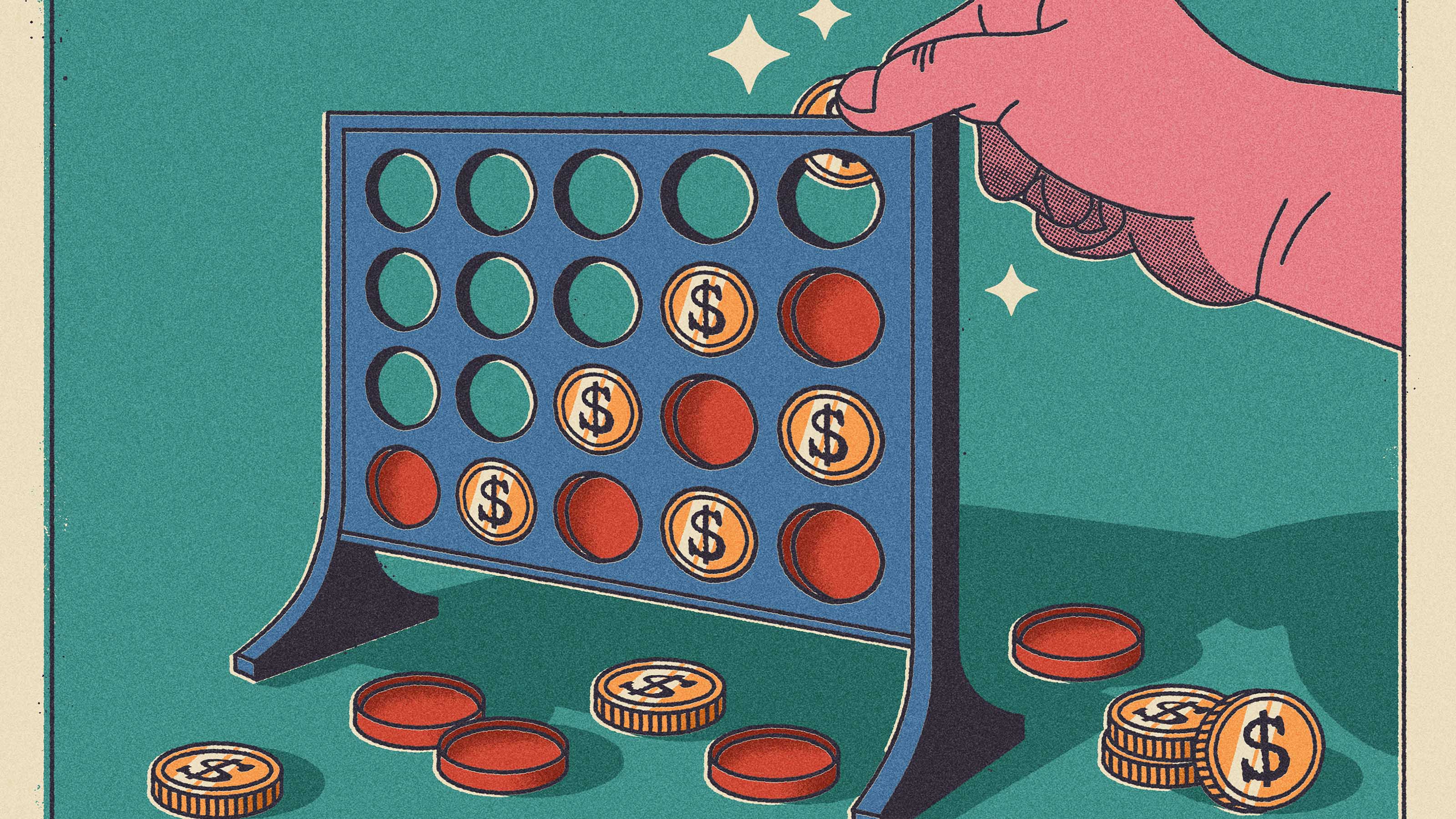Why I'm Sticking With Acacia Research's Stock
I was drawn to Acacia Research because my family is loaded with lawyers and engineers.

Profit and prosper with the best of Kiplinger's advice on investing, taxes, retirement, personal finance and much more. Delivered daily. Enter your email in the box and click Sign Me Up.
You are now subscribed
Your newsletter sign-up was successful
Want to add more newsletters?

Delivered daily
Kiplinger Today
Profit and prosper with the best of Kiplinger's advice on investing, taxes, retirement, personal finance and much more delivered daily. Smart money moves start here.

Sent five days a week
Kiplinger A Step Ahead
Get practical help to make better financial decisions in your everyday life, from spending to savings on top deals.

Delivered daily
Kiplinger Closing Bell
Get today's biggest financial and investing headlines delivered to your inbox every day the U.S. stock market is open.

Sent twice a week
Kiplinger Adviser Intel
Financial pros across the country share best practices and fresh tactics to preserve and grow your wealth.

Delivered weekly
Kiplinger Tax Tips
Trim your federal and state tax bills with practical tax-planning and tax-cutting strategies.

Sent twice a week
Kiplinger Retirement Tips
Your twice-a-week guide to planning and enjoying a financially secure and richly rewarding retirement

Sent bimonthly.
Kiplinger Adviser Angle
Insights for advisers, wealth managers and other financial professionals.

Sent twice a week
Kiplinger Investing Weekly
Your twice-a-week roundup of promising stocks, funds, companies and industries you should consider, ones you should avoid, and why.

Sent weekly for six weeks
Kiplinger Invest for Retirement
Your step-by-step six-part series on how to invest for retirement, from devising a successful strategy to exactly which investments to choose.
I recently read an article contending that personal biases can lead investors astray. I’ve long known that one of the keys to being a successful investor is keeping your emotions under control. But I’ve always thought that personal biases, which are shaped by our life experiences, might lead us to invest more wisely. However, Acacia Research (symbol ACTG), the worst performer in my Practical Investing portfolio, may provide more support for the author’s case than for my own.
To those given to pejoratives, Acacia is a patent troll. It contracts with holders of U.S. patents to protect their rights against unauthorized use and negotiates licensing deals with firms that want to use the technology. In recent years, Acacia has also bought some patents outright, protecting and licensing inventions for its own benefit.
I was drawn to the stock for several reasons. First, my family is loaded with lawyers and engineers. One of my grandfathers was an engineer who worked on rocket ships. Other relatives are engineers who have worked on everything from sound systems to laser beams. My sister and brother-in-law are both lawyers.
From just $107.88 $24.99 for Kiplinger Personal Finance
Become a smarter, better informed investor. Subscribe from just $107.88 $24.99, plus get up to 4 Special Issues

Sign up for Kiplinger’s Free Newsletters
Profit and prosper with the best of expert advice on investing, taxes, retirement, personal finance and more - straight to your e-mail.
Profit and prosper with the best of expert advice - straight to your e-mail.
As someone who has worked at home for the past 25 years, I know firsthand how technology has improved our daily lives. Had it not been for personal computers, cell phones, Wi-Fi and Google, I might have had to choose between being a full-time journalist and picking up my kids from school. Thankfully, I never had to make that choice. I’m confident that technology will improve the lives of future generations in ways that I can’t even imagine.
But I believe that in most cases, inventors won’t invent unless they can profit from their work. Yet engineers rarely have the skill to protect their rights in court. Thus, Acacia’s business, which delegates the job of protecting an inventor’s rights to a firm full of patent attorneys, resonates with me. For a time, many other investors loved Acacia, too. Its stock, which sold for $2.50 in October 2008, hit $46 in 2011.
The company, which is based in Newport Beach, Calif., reported record earnings in 2012. But the stock retreated, and in early 2013 I bought 612 shares at prices ranging from $26 to $27.50. I did so knowing that Acacia’s earnings would be “lumpy”—that is, inconsistent. Unfortunately, the results have been far worse than lumpy. Acacia has lost money every quarter since I bought it, and the stock has sunk to $18.
Now what? I spoke with two analysts with diametrically opposed views on Acacia’s stock. Ironically, the reasoning behind both ratings is the same: Acacia’s results are hard to predict because they depend on the number and timing of legal settlements. In some periods, all Acacia does is spend money battling with alleged patent violators, sometimes with little or nothing to show for its efforts. At other times, money from settlements and licensing fees pours in.
Valuable assets. Stephens Inc. analyst Tim Quillin, who rates Acacia a sell, says that consumer sentiment has turned against patent trolls, and that has made patent violators less likely to settle. That could force Acacia to fight harder for every dollar. Mark Argento, of Lake Street Capital Markets, thinks Acacia’s portfolio has a lot of value. “The assets of the business are not well appreciated, and that creates an opportunity where you can buy them at a discount,” he says. Argento thinks the stock could reach $30 in a year.
That’s awfully optimistic. But things are looking up. The stock rose sharply after Acacia delivered third-quarter results that, while still in the red, topped forecasts. I continue to hold the stock because I still believe in the concept. And when you invest your own money, you have the right to make decisions based on your own biases.
Profit and prosper with the best of Kiplinger's advice on investing, taxes, retirement, personal finance and much more. Delivered daily. Enter your email in the box and click Sign Me Up.

-
 Dow Adds 1,206 Points to Top 50,000: Stock Market Today
Dow Adds 1,206 Points to Top 50,000: Stock Market TodayThe S&P 500 and Nasdaq also had strong finishes to a volatile week, with beaten-down tech stocks outperforming.
-
 Ask the Tax Editor: Federal Income Tax Deductions
Ask the Tax Editor: Federal Income Tax DeductionsAsk the Editor In this week's Ask the Editor Q&A, Joy Taylor answers questions on federal income tax deductions
-
 States With No-Fault Car Insurance Laws (and How No-Fault Car Insurance Works)
States With No-Fault Car Insurance Laws (and How No-Fault Car Insurance Works)A breakdown of the confusing rules around no-fault car insurance in every state where it exists.
-
 The Most Tax-Friendly States for Investing in 2025 (Hint: There Are Two)
The Most Tax-Friendly States for Investing in 2025 (Hint: There Are Two)State Taxes Living in one of these places could lower your 2025 investment taxes — especially if you invest in real estate.
-
 The Final Countdown for Retirees with Investment Income
The Final Countdown for Retirees with Investment IncomeRetirement Tax Don’t assume Social Security withholding is enough. Some retirement income may require a quarterly estimated tax payment by the September 15 deadline.
-
 How to Beef Up Your Portfolio Against Inflation
How to Beef Up Your Portfolio Against Inflationinvesting These sectors are better positioned to benefit from rising prices.
-
 Taxable or Tax-Deferred Account: How to Pick
Taxable or Tax-Deferred Account: How to PickInvesting for Income Use our guide to decide which assets belong in a taxable account and which go into a tax-advantaged account.
-
 Smart Investing in a Bear Market
Smart Investing in a Bear Marketinvesting Here's how to make the most of today’s dicey market.
-
 How to Open a Stock Market Account
How to Open a Stock Market Accountinvesting Investing can be fun, but you need a brokerage account to do it. Fortunately, it’s easy to get started.
-
 The Right Dividend Stock Fund for You
The Right Dividend Stock Fund for YouBecoming an Investor Dividend stock strategies come in many different flavors. Here's what to look for.
-
 Alternative Investments for the Rest of Us
Alternative Investments for the Rest of UsFinancial Planning These portfolio diversifiers aren't just for the wealthy.